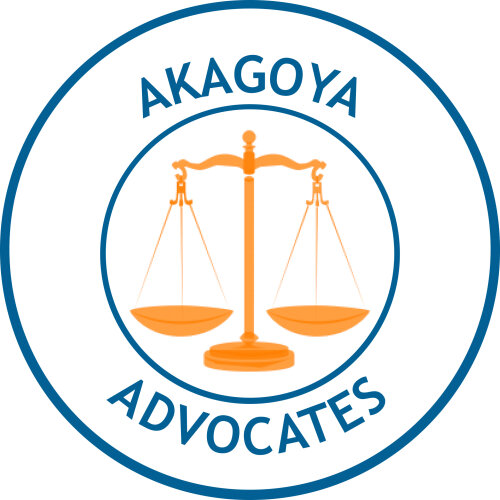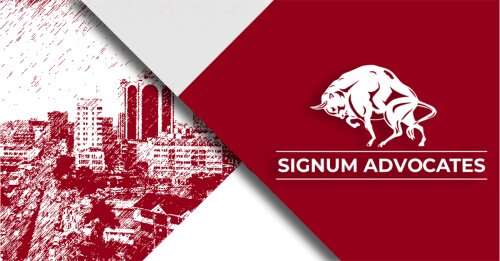Best Whistleblower & Qui Tam Lawyers in Uganda
Share your needs with us, get contacted by law firms.
Free. Takes 2 min.
Or refine your search by selecting a city:
List of the best lawyers in Uganda
About Whistleblower & Qui Tam Law in Uganda
Whistleblower and Qui Tam law in Uganda is designed to protect and incentivize individuals who come forward to report illegal activities, fraud, corruption, or any misconduct within organizations, particularly those involving government funds. Whistleblowers can play a crucial role in uncovering illicit activities that may otherwise remain undetected. In Uganda, these laws aim to safeguard whistleblowers from retaliation, entitle them to anonymity where applicable, and potentially offer them a share of any financial recovery derived from their disclosures.
Why You May Need a Lawyer
Engaging a lawyer when dealing with whistleblower or qui tam actions can be critical for several reasons. Firstly, navigating the legal framework and ensuring your rights and protections are upheld can be complex. A lawyer provides guidance on collecting and presenting evidence in a manner that complies with legal standards. Secondly, they can offer assurance of confidentiality, help protect against potential retaliation from employers, and negotiate any potential rewards. Legal expertise is particularly valuable in determining the strategic approach to take if a government response is involved.
Local Laws Overview
Uganda's Whistleblowers Protection Act, 2010, serves as the primary legislation for protecting whistleblowers in Uganda. This Act provides mechanisms for individuals to disclose information about corruption and maladministration and includes provisions to protect whistleblowers from legal liability and workplace reprisal. Key aspects include:
- Ensuring anonymity for whistleblowers, unless they consent to disclosure.
- Providing whistleblowers the right to protection if their employer retaliates.
- Offering financial incentives for disclosures that result in government recovery actions.
Frequently Asked Questions
What qualifies as whistleblowing under Ugandan law?
Whistleblowing involves reporting actions deemed to be illegal, unethical, or in violation of organizational policies, often related to fraud or corruption.
Who can be a whistleblower?
Typically, employees, contractors, or anyone with insider knowledge can act as whistleblowers if they have credible information regarding misconduct.
Are there any protections for whistleblowers in Uganda?
Yes, under the Whistleblowers Protection Act, whistleblowers are protected from retaliation, including dismissals, suspensions, or other adverse actions.
What is a Qui Tam case?
A Qui Tam case allows a private individual to file a lawsuit on behalf of the government against a person or organization suspected of fraudulently claiming government funds.
Do whistleblowers receive any rewards?
Yes, in certain cases, whistleblowers may be entitled to a percentage of the money recovered as a result of their information.
How can one ensure their information is protected?
Engaging with legal counsel can ensure proper channels are used for reporting and that confidentiality is maintained as per legal stipulations.
What are the possible legal repercussions for false claims?
False claims could result in legal action against the whistleblower, including defamation suits or penalties for perjury if the information is proven to be deliberately false.
How long does a whistleblower case take to resolve?
The duration varies and depends on the complexity of the case, the level of investigation required, and court schedules.
Can a whistleblower case be anonymous?
Yes, whistleblowers can request anonymity, but in some cases the information about the individual might need to be disclosed during legal proceedings, with their consent.
What if I face retaliation for blowing the whistle?
Retaliation against whistleblowers is prohibited, and legal recourse is available to reverse adverse employment actions and seek damages.
Additional Resources
For more information or support, individuals can contact the Inspectorate of Government, the Anti-Corruption Unit, or local legal aid organizations focusing on employment or human rights laws. These bodies offer guidance on the practical aspects of initiating and carrying through a whistleblower claim.
Next Steps
If you are considering blowing the whistle on corruption or fraud, it's advisable to consult with a legal professional specializing in whistleblower cases immediately. They will help you navigate the process while protecting your rights and provide strategic advice tailored to your specific situation. It's important to document all interactions related to the suspected misconduct and communicate your concerns through proper legal channels.
Lawzana helps you find the best lawyers and law firms in Uganda through a curated and pre-screened list of qualified legal professionals. Our platform offers rankings and detailed profiles of attorneys and law firms, allowing you to compare based on practice areas, including Whistleblower & Qui Tam, experience, and client feedback.
Each profile includes a description of the firm's areas of practice, client reviews, team members and partners, year of establishment, spoken languages, office locations, contact information, social media presence, and any published articles or resources. Most firms on our platform speak English and are experienced in both local and international legal matters.
Get a quote from top-rated law firms in Uganda — quickly, securely, and without unnecessary hassle.
Disclaimer:
The information provided on this page is for general informational purposes only and does not constitute legal advice. While we strive to ensure the accuracy and relevance of the content, legal information may change over time, and interpretations of the law can vary. You should always consult with a qualified legal professional for advice specific to your situation.
We disclaim all liability for actions taken or not taken based on the content of this page. If you believe any information is incorrect or outdated, please contact us, and we will review and update it where appropriate.
Browse whistleblower & qui tam law firms by city in Uganda
Refine your search by selecting a city.















